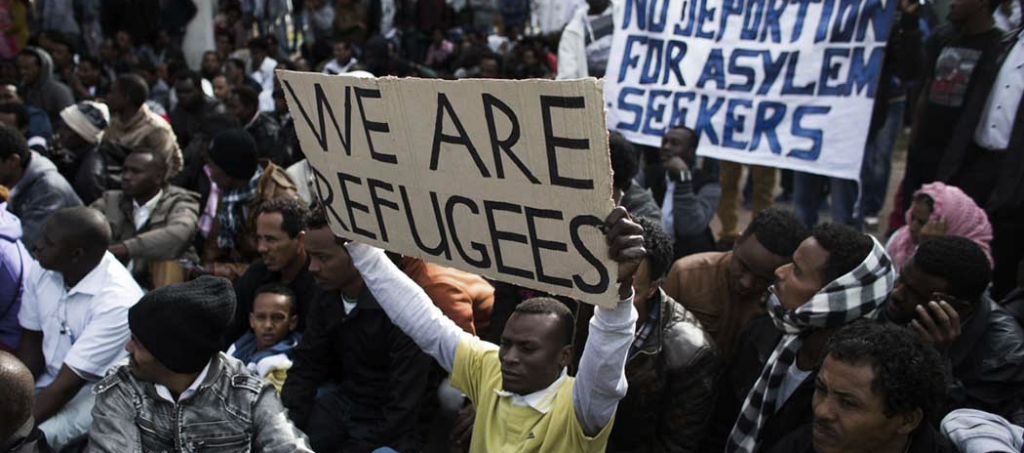For more information or to request an interview, please contact:
I have loved many African sisters from a distance, whose lives have personified the state of Africa as a collective: resilient, healing, progressive, unyielding. Two of these women have been refugees; one from the Democratic Republic of the Congo (DRC) and the other from Somalia. The Congolese woman had found refuge in South Africa, and the Somali woman was granted asylum in Kenya. Our friendships were carried almost by a magnetic force. None of us was trying, or looking... we just found each other, at different times and for different reasons.
These women embodied and balanced both peace and peacelessness at the same time. Both women carried their realities with such grace that my heart could not help but be drawn to them. For me, their lives magnified how decisions made by politicians and legislatures have direct consequences on the wombs of the innocent and the lungs of the brave.
Asylum is a gift that is earned through a history of trauma, and a country that presents this gift to its seekers adopts a responsibility to try by all means to give to its seekers all that their home could not. In many ways, most African states are still defining their sovereignty, and yet they have taken on the task of providing refuge for hundreds of thousands of displaced people. When the African tally is put together, African states house millions more refugees than European governments do. This is not something African leaders have adopted from the West, but rather something which is simply The African Way.
We have trouble keeping up with the demand for refuge, and we struggle even more with sensitising our populations - as seen in South Africa’s experience with xenophobia, which is the leading cause for some 200 Congolese families seeking to be repatriated this year (2019). Kenya, in addition to its own struggles, is in the process of closing down Dadaab, one of the world’s largest refugee camps which houses over 200 000 Somali refugees.
South Africa and Kenya share something in the manner in which they treat asylum seekers; they have a conditional “open door” for citizens from nations in distress. This allows families in, but also quite readily - at the behest of political decision making - kicks them right out.
Having an open door alone is insufficient if our peacekeeping efforts are futile with the countries from where our refugees come. Sending people back to violence is also an act of violence. Peacekeeping efforts in the DRC and Somalia have been going on for ages, yet we still await any true progress. Sensitisation is too often a neglected concept when considering what Africans need for the attainment of a unified continent.
Sensitisation is the first step towards citizens (and leaders) recognising not only that refugees are people whom we can love and who can love us too, but also that with the right strategies in place, they can be beneficial to a state as social capital.
My Congolese and Somali friends are mothers and scholars. The fear which grips them about home, because of what their homes have done to themselves, creates the need for us to protect The African Way and to improve upon it. To be unafraid to identify with those whose wounds are soul-deep will undeniably lead to a population that is capable of bringing benefit from welfare and eradicating the NPO structures that make giving help an expense rather than a sustainable economic contribution, while we work towards peace.
What Africa as a whole, and South Africa in particular, lack where refugees are concerned is this: putting its brain where its heart already is.
Mayibuye iAfrika.
_______________________________________
So, what do you think? If you are looking to make an impact of your own, we encourage you to sign this petition, to encourage our leaders to stand against xenophobia. Additionally, you can check out our other calls to action here.
Do you have something to say? You can contribute to the Human Writes blog by becoming one of our young Human Writers here.
This article was written by Thobeka Wandile Nyathikazi. Thobeka is a social entrepreneur, writer and law graduate from the University of the Witwatersrand. She Loves Africa and Diddle Daddles. Find her at www.thobekanyathikazi.weebly.com
**This article was contributed by a guest blogger. This blog entry does not necessarily represent the position or opinion of Amnesty International South Africa


